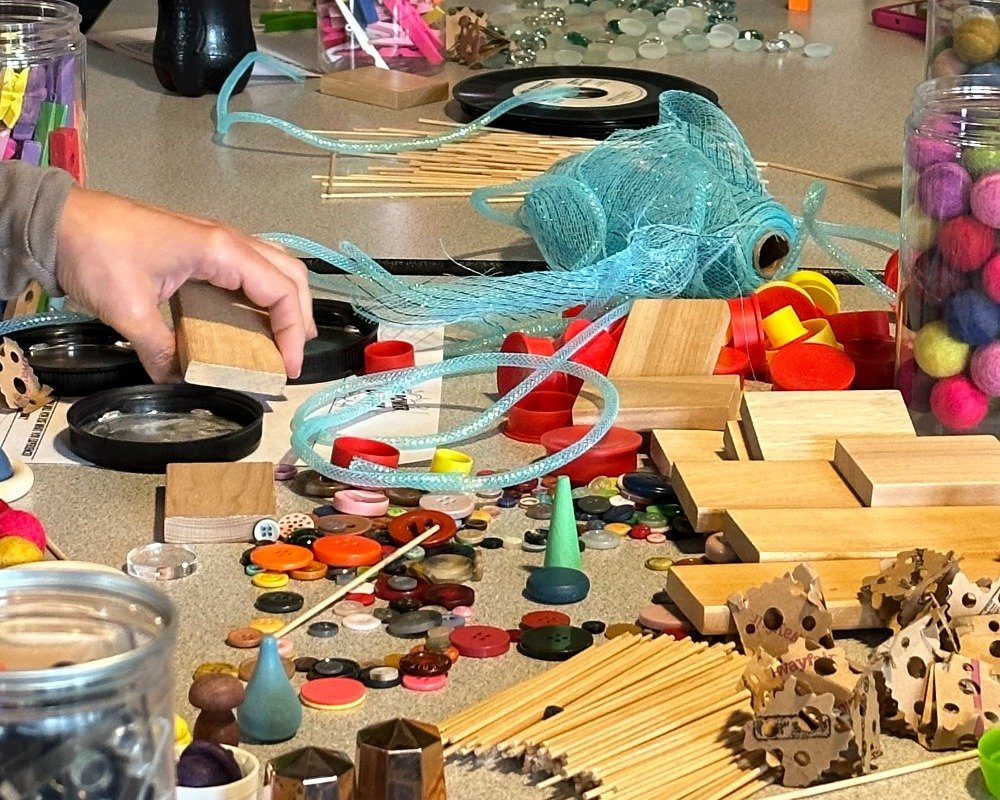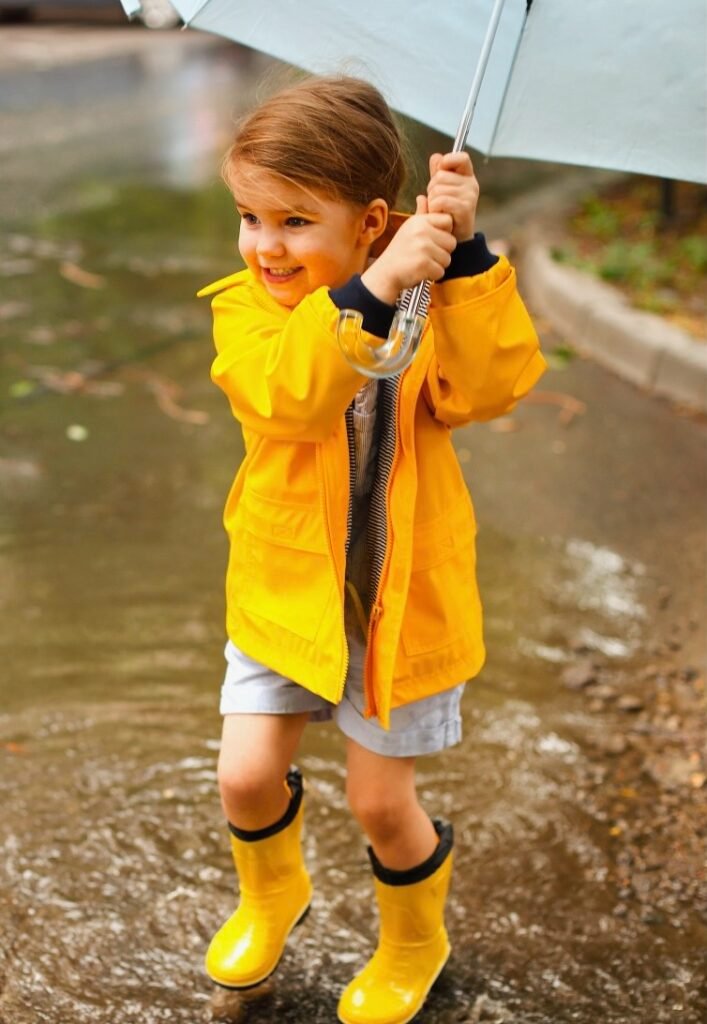During the recent International Play Association IPA conference, we rediscovered the power of agency as we found ourselves in the unexpected path of Hurricane Helene. This shared experience and collective resilience underscored the transformative power of play and playful leadership. The healing nature of play was evident, and our group’s ability to overcome this challenge reaffirmed all the research on its healing qualities. Our incredible, playful leadership stewarded the most difficult situations with agency and made us feel safe and secure despite the difficult circumstances. This inspiring demonstration of the power of play should motivate educators to ishift their practices to incorporate more risky play.

I would not be sincere if I did not point out that Helene also made visible systems of oppression that continuously displace people of their agency and choice. I will speak only of my experience. The fancy downtown hole I stayed at was operating at a minimum. However, we had electricity, and the hotel was still a safe place to shelter.
The courageous people who served us so well went to work even when they experienced damages and loss to their properties. They were frazzled but kind and supportive. They were doing their jobs with agency and tenacity. In other areas in Greenville, South Carolina, Electricity was down longer, and some hotels outside the downtown tourist area were evacuated, making me wonder how we designed cities to provide more resources for privileged regions at the expense of less-resourced communities.
This experience made me consider the importance of advocating for play to promote agency and resiliency in young children. It also opened my eyes to how important it is to have the agency to advocate for themselves and others.
In high-stakes outcome education and structured activities, it is essential to prioritize natural, self-active play experiences for children. Play builds agency in young children. When children can make meaningful decisions and choices about situations that directly affect them, they become agents in making a change—agency—a critical skill for building a sense of well-being and a strong identity. A sense of agency helps children navigate challenging situations and build resiliency.
What is Agency?
Agency, in simple terms, refers to the ability of individuals to act independently and make their own choices. For children, this means taking charge of their learning and having the power to make decisions that influence events and impact their surroundings. Agency is nurtured in early childhood ecosystems designed to facilitate and encourage care, advocacy for one another, and negotiation during play. When children take ownership of their learning and responsibility for each other’s well-being, they are not just participants but active contributors to their ecosystem.
When children can make meaningful decisions and choices about situations that directly affect them, they become agents in making a change. Agency involves being responsible, aware, motivated, and engaged. When children have a sense of agency, they actively and willingly participate in making meaningful changes to better their family, community, and world. Harvard psychology professor Jerome Bruner expresses the importance of ‘cultural agency’ in his book
The Culture of Education. Cultural agency refers to the influence of culture on an individual’s ability to act independently and make their own choices. Culture shapes minds, providing us with the toolkit by which we construct not only our worlds but our very conceptions of our selves and our powers. When families share their histories and traditions with children, they provide a conceptual system that helps them organize their world. Children can then extrapolate their history; in the future, they may begin to see themselves as agents with a history and the capacity to create a positive future.
How to Build Agency by Experiencing Natural Elements
Natural elements play a pivotal role in nurturing children’s resilience. Interacting with nature fosters self-confidence and agency, instilling a profound respect for the natural world. When children face a natural disaster, they often revisit the experience in their play. During play, children interpret their emotions and fears. Crucially, they learn that adaptability and learning from mistakes offer opportunities to refine and relearn strategies rather than being viewed as failures. At the IPA conference, we, as adults, engaged in play.
We understood that we couldn’t control nature, but we could control our approach to the situation. Natural disasters are lessons we can learn from, even in moments that seem out of control. We can find power and build the capacity to respond with confidence and with a strong sense of community.
This experience reminded me of a time when our house flooded and our youngest daughter came down the stairs with her rain boots and yellow raincoat, holding an umbrella. At the time, I tought it was cute. I did not see how she was expressing how afraid she was of the water, and how she needed the adult reassurance that she was safe. For days after the flood, she cried a lot and tested many limits.

In conversations with the talented educators at Children’s Circle Nursery school, did we come to understand that in her behavior she was asking for the adult to assure her that she would be safe from the flood. At the age of three, she had the agency to take care of herself by putting on boots and a raincoat. As adults, we were so concerned with the flooding that we did not listen to her message.
Benefits of Promoting Agency Through Play
Play offers children invaluable growth opportunities. It is a universal and unifying force that transcends sectors and thematic areas. The role of play in fostering agency is particularly crucial for children affected by crises, where uncertainty and a loss of control are prevalent. The empowering nature of play can help mitigate the effects of natural disasters. Agency is not just about initiating change but also about seeing it through to completion.
Play leads children to be flexible and have ways to deal with success and failure. Loose parts give children multiple opportunities to test ideas, explore different outcomes, and develop diverse solutions. Balancing tubes one on top of the other engages children in identifying what may create a problem and generating, testing, and evaluating alternative solutions. For example, when children experience an earthquake, they make meaning by constructing and deconstructing tube and block structures. During loose parts play, children’s sense of agency propels them to continue exploring until they are satisfied with the outcome.
Children can understand agency and independence when given time with other children and adults who build upon their knowledge. Educators play a crucial and valued role in this process. When we give children our focused attention, we can observe and find the moment to ask inquiry questions, which can scaffold learning. These interactions highlight the integral role of educators in facilitating children’s play and their value in the learning process.
Deep learning occurs when children struggle instead of being given the answers, and recognizing this provides us with the understanding that it may take longer for children to solve a problem and to develop the patience needed to facilitate the process.
One of the most essential features in children’s play is their ability to imagine, manipulate, and organize loose parts to respond to those creative thoughts. Children stay focused and engage their intellectual curiosity when a sense of agency is present, underlining the need for patience and understanding in the learning process, making educators feel the importance of these qualities.
Why is Agency Through Play Essential?
- Autonomy: Children gain the ability to make choices and decisions that influence their world.
- Resilience: By organizing themselves, negotiating, and taking initiative, children build resilience and self-esteem.
- Social Skills: Play fosters socialization, problem-solving, and collaboration.
While many educators prioritize children’s right to play, opportunities for agency through play are only sometimes explicit. To increase agency through play, consider the following strategies:
Provide Time and Space for Self-Initiated and Self-Active Play.
Play encourages discovery, problem-solving, initiative, and socialization. For example, when children play with Loose Parts, they can choose to explore different actions, experience a variety of affordances, and learn about their ecosystem without educators influencing their choices.
Use Unscripted and Unpredictable Materials
Children benefit from exploring and using unscripted and unpredictable materials, which allow them to cultivate interests, self-expression, collaboration, and diverse dispositions. Unscripted materials also give children control over their actions.
Value the Healing Qualities of Play
Play ecosystems provide children with safe and supportive opportunities to express their thoughts and feelings. By engaging in play, children can work through traumatic experiences, improve their communication and social skills, build self-esteem, and learn healthy ways to cope with stress or struggles. Play therapy is particularly effective for children who may have difficulty expressing themselves verbally or have experienced challenging situations.
Offer Flexibility and Choice
In play ecosystems, children can choose how they want to engage—individually, in pairs, or groups—encouraging positive social interactions and ownership over their learning while building connections and relationships.
Involve Children in Organizing Physical Spaces
Allowing children to collaborate in organizing their physical space fosters creativity, self-expression, collaboration, and ownership. Practitioners should consider safety issues, especially for children of differing abilities and genders.
Provide Rest and Meditative Spaces
Children should be able to go to a quiet area if they are tired and need a break. Different rest and meditative spaces within the ecosystem ensure children can control their emotions and self-regulate. Children must have the choice and power to decide when they need quiet time. These spaces are not adult controlled to manage behavior.
Conclusion
Agency is not just a skill in young children; it’s a foundational element for thriving in an unpredictable world. By integrating agency through Loose Parts play and self-directed learning, educators can help children build resilience, social skills, and confidence, which are crucial for their holistic development and well-being.
For educators striving to foster creativity and critical thinking, prioritizing agency is key. By implementing the strategies discussed, you can empower children to take ownership of their learning and develop the skills necessary to become resilient, confident individuals.
Ready to integrate these practices into your teaching? Explore more strategies and join our community of forward-thinking educators and Just Play! today.